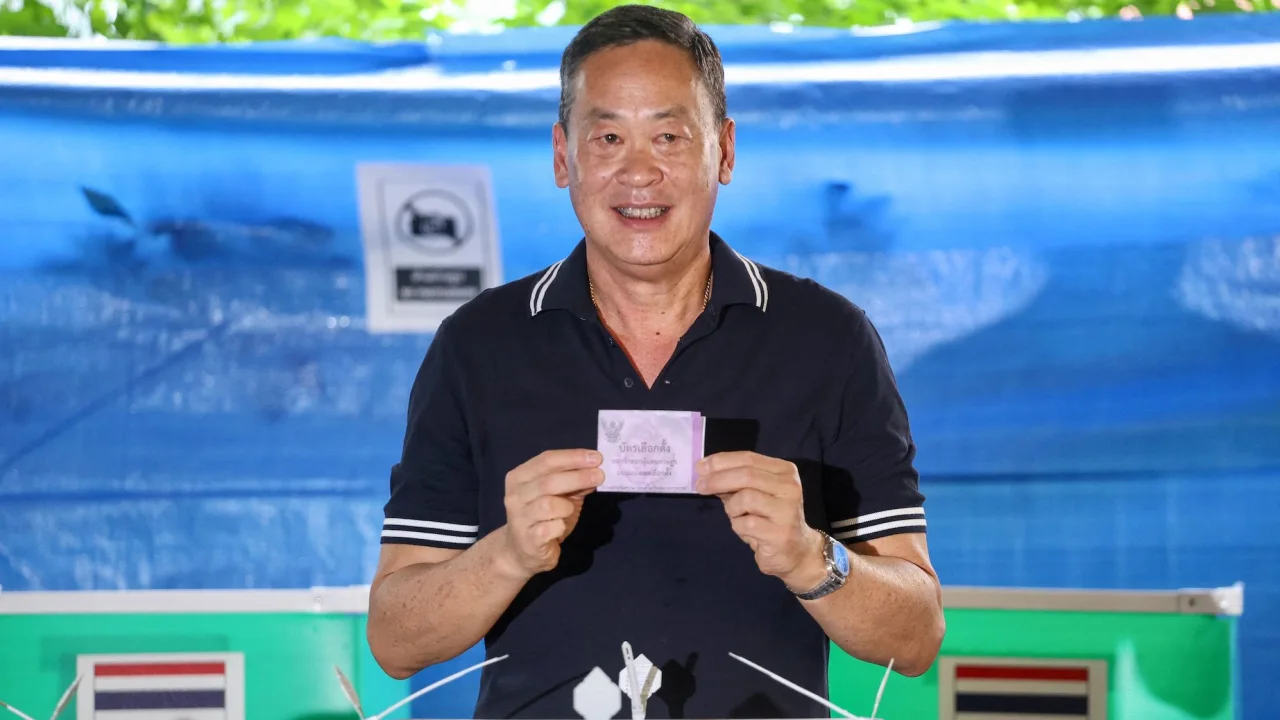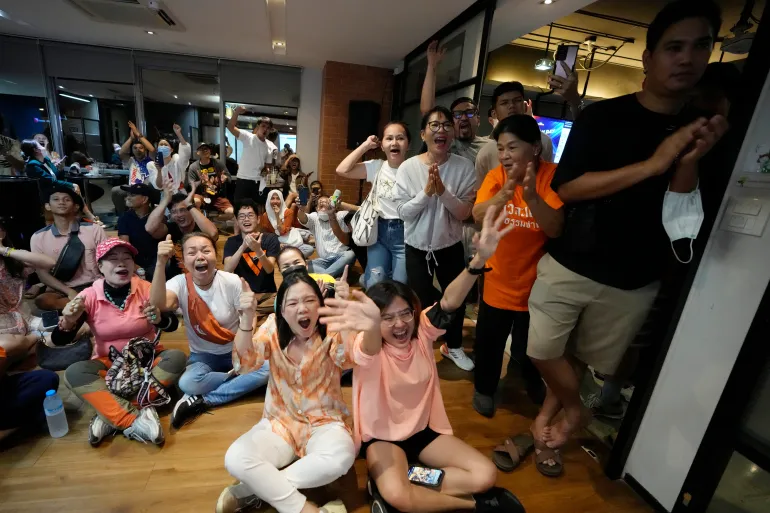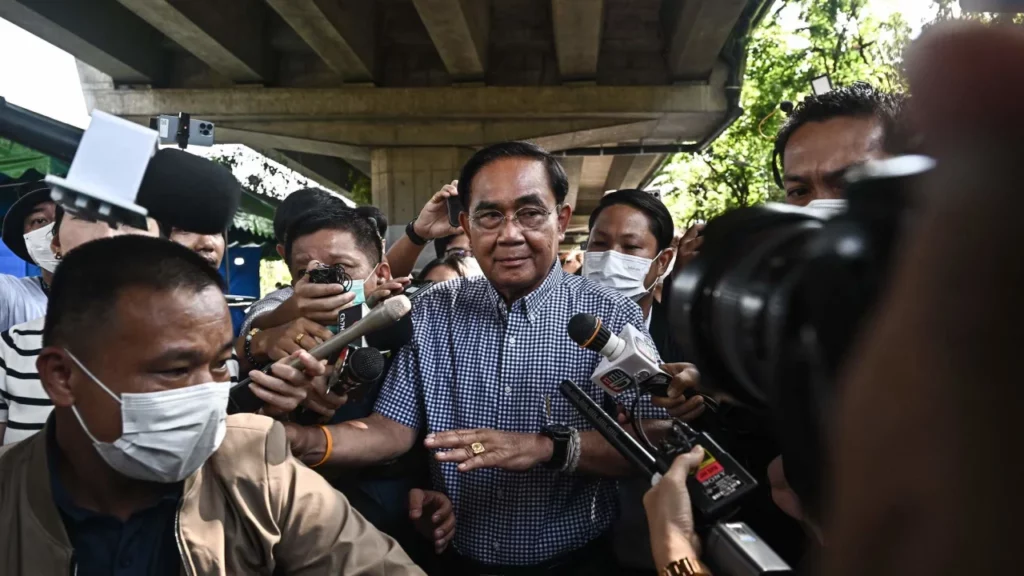Thailand’s opposition parties are leading in the early stages of the election, according to a preliminary vote count.

The Pheu Thai Party, which has won every election since 2001, is in the lead, followed by the Move Forward Party. The two parties are aligned with the progressive movement, while the conservative parties are allied with the military.
The early results suggest that the opposition is on track to win the election, which would be a major setback for the military and its allies. The election is seen as a referendum on the military’s rule, which has been marred by corruption and human rights abuses.
The opposition has campaigned on a platform of reform, promising to address the country’s economic and social problems. The military has campaigned on a platform of stability, but many Thais are tired of the military’s rule and are looking for change.
The election is being closely watched by the international community, which is hoping for a peaceful and democratic transition of power in Thailand.

The Pheu Thai Party, led by the billionaire Shinawatra family, is in the lead, followed by the Move Forward Party. The two parties are aligned with the progressive movement, while the ruling parties are backed by a nexus of old money, conservatives and generals.
The early results suggest that the opposition is on track to win the election, which would be a major setback for the ruling parties. The election is seen as a referendum on the ruling parties’ rule, which has been marred by corruption and human rights abuses.
The opposition has campaigned on a platform of reform, promising to address the country’s economic and social problems. The ruling parties have campaigned on a platform of stability, but many Thais are tired of the ruling parties’ rule and are looking for change.

The election is being closely watched by the international community, which is hoping for a peaceful and democratic transition of power in Thailand.
Here are some additional details about the two main opposition parties:
- Pheu Thai Party: The Pheu Thai Party is the largest party in Thailand, and it has won every election since 2001. The party is led by the Shinawatra family, which is one of the richest families in Thailand. The party is known for its populist policies, and it has a strong base of support among the rural poor.
- Move Forward Party: The Move Forward Party is a newer party, but it has quickly become one of the most popular parties in Thailand. The party is led by a group of young, progressive politicians, and it has a strong base of support among the urban middle class. The party is known for its progressive policies, and it has campaigned on a platform of reform.
The results of the election are still too early to call, but it is clear that the opposition is poised to make significant gains. The election is being closely watched by the international community, and it is hoped that the election will lead to a peaceful and democratic transition of power in Thailand.
This is because the military has written the parliamentary rules in a way that favors them. In order to form a government, a party must win a majority of seats in both the lower and upper houses of parliament. The lower house is elected by the people, but the upper house is appointed by the military. This means that the military can effectively veto any government that it does not like.
It is possible that the opposition parties will be able to form a coalition government with some of the smaller parties, but this is not guaranteed. The military is likely to use its influence in the Senate to block any coalition government that it does not like.
The outcome of the election is still uncertain, but it is clear that the military is still in control of Thailand. The opposition parties may win the election, but they may not be able to form a government.
Real estate mogul Srettha Thavasin, one of Pheu Thai’s prime ministerial candidates, said the party was still confident that it would prevail in the election, despite early results showing the party in the lead.
“We’re still confident that when we have all the votes in, we’ll still have a lead,” Thavasin told reporters. “We’re not going to give up until the very end.”

Thavasin’s comments come as the election is still too close to call. The Pheu Thai Party is currently in the lead, but the ruling Palang Pracharat Party is not far behind. It is possible that the election could go to a runoff, if no party wins a majority of seats in the lower house.
Despite the uncertainty, Thavasin said he was confident that the Pheu Thai Party would be able to form a government. “We have a strong team, and we’re confident that we can deliver on our promises to the Thai people,” he said.
The election is being closely watched by the international community, as it is seen as a test of Thailand’s democracy. The Pheu Thai Party is the party of former Prime Minister Thaksin Shinawatra, who was ousted in a military coup in 2014. Thaksin is a popular figure among the rural poor, but he is also seen as a divisive figure by the Bangkok elite.
The outcome of the election will have a significant impact on Thailand’s future. If the Pheu Thai Party wins, it will be seen as a victory for democracy. However, if the ruling party wins, it will be seen as a victory for the military.
Pheu Thai Party, the largest party in Thailand, has been banking on nostalgia from its cheap healthcare, community loans and raft of subsidies to sweep it back to power after three of its four governments were toppled. The party remains hugely popular among working class Thai people.
Move Forward Party, on the other hand, saw a late-stage surge in opinion polls and was banking on young people – including 3.3 million first-time voters – turning out in force to back its liberal agenda, including plans to dismantle monopolies, weaken the military’s political role and amending a strict law on royal insults that critics say is used to stifle dissent.
Move Forward leader Pita Limjaroenrat ruled out any alliance with army-backed parties, which he predicted could not stay in power. “The result is clear that there is a low chance of a minority government,” he said.

Prinya Thaewanarumitkul, assistant professor at Thammasat University’s Law Faculty said it was not yet certain what partnerships might emerge.
“We can say that Pheu Thai will lead the government, but which party will they choose?” Prinya said.
The outcome of the election is still uncertain, but it is clear that the two main opposition parties are positioning themselves for a potential post-election power grab.
SOURCE: REUTERS


